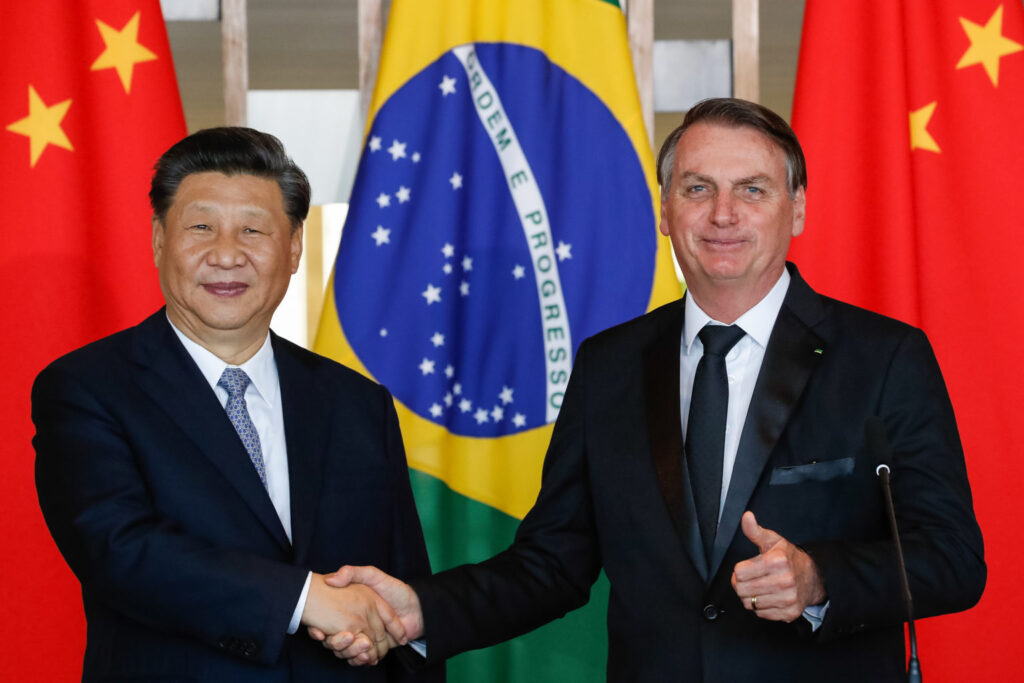
O Brasil é um país com tamanho desproporcional em relação a seus vizinhos, especialmente em termos econômicos. O resultado disto é que o país acaba desempenhando “naturalmente” uma força gravitacional, fazendo com que os demais países sul-americanos acabem tendo suas economias muito dependentes com a economia brasileira.
Essa condição não era diferente nem mesmo quando considerávamos a outra grande economia da região: Argentina. Historicamente os argetinos tinham no Brasil o maior destino de suas exportações. Em setembro e outubro de 2019 a China ocupou essa primazia, sendo o principal destino das exportações argentinas. Foi por uma diferença pequena e durou só esses dois meses, o que parecia ser algo transitório.
Mas a realidade está apontando para outro lado. Os números de abril, maio e junho mostram que a China ocupou o espaço de uma forma mais estrutural. Enquanto em 2019 a diferença entre as exportações para o Brasil em relação à China não chegaram aos USD 75 milhões, agora a diferença em cada mês ultrapassa os USD 175 milhões.
Em grande parte essa mudança pode ser explicada como uma consequência da pandemia de Covid, já que quase 40% do comércio entre Brasil e Argentina está ligado ao setor automotivo. Ainda assim, mostra que a China está crescendo em relevância e, sobretudo, presença na região. E mais, é uma realidade que veio para ficar.
O comércio é apenas parte da história, e nem sempre a mais importante. As parcerias de China e Argentina estão se expandindo para diferentes setores, como o militar (como pode ser visto pelo observatório espacial chines montado na província de Neuquén). Olhar para essas outras dimensões é importante para que consigamos perceber que não se trata apenas de uma relação comercial em ascendência, mas o aumento da presença chinesa na região.
A consequência direto disto é que o Brasil, antes tido como parceiro preferencial da China na região, está perdendo espaço relativo. A Argentina começa a se destacar como mais um. Esse filme já foi visto antes, na África. Lá, a China foi expandindo sua relevância como parceira comercial e em outras áreas, e agora tem uma relevância inconteste no continente africano.
O mesmo deverá ocorrer na América do Sul. A presença chinesa crescerá sem parar, sobretudo porque está começando pelos maiores. Ser relevante para países menores é mais fácil e rápido.
Não se trata de expulsar os chineses ou começar um movimento xenófobo. Mas é preciso ter clareza deste crescimento quase que inexorável, para que possamos repensar nossas estratégias. A China não deve ser tratada como uma inimiga, mas como uma parceira na construção de uma nova estrutura de poderes mundiais. Para tanto, é preciso que melhoremos nossas relações bilaterais, hoje tão contaminadas por ideologias razas. Ao mesmo tempo, temos que usar melhor os meios multilaterais para a institucionalização das tensões internacionais, sendo, neste caso, o espaço dos BRICS como o mais indicado.
Pós-Doutor em Competitividade Territorial e Indústrias Criativas, pelo Dinâmia – Centro de Estudos da Mudança Socioeconómica, do Instituto Superior de Ciencias do Trabalho e da Empresa (ISCTE, Lisboa, Portugal). Doutor em Relações Internacionais pela Universidade de Brasília (2007). É Diretor Executivo do Mapa Mundi. ORCID https://orcid.org/0000-0003-1484-395X
